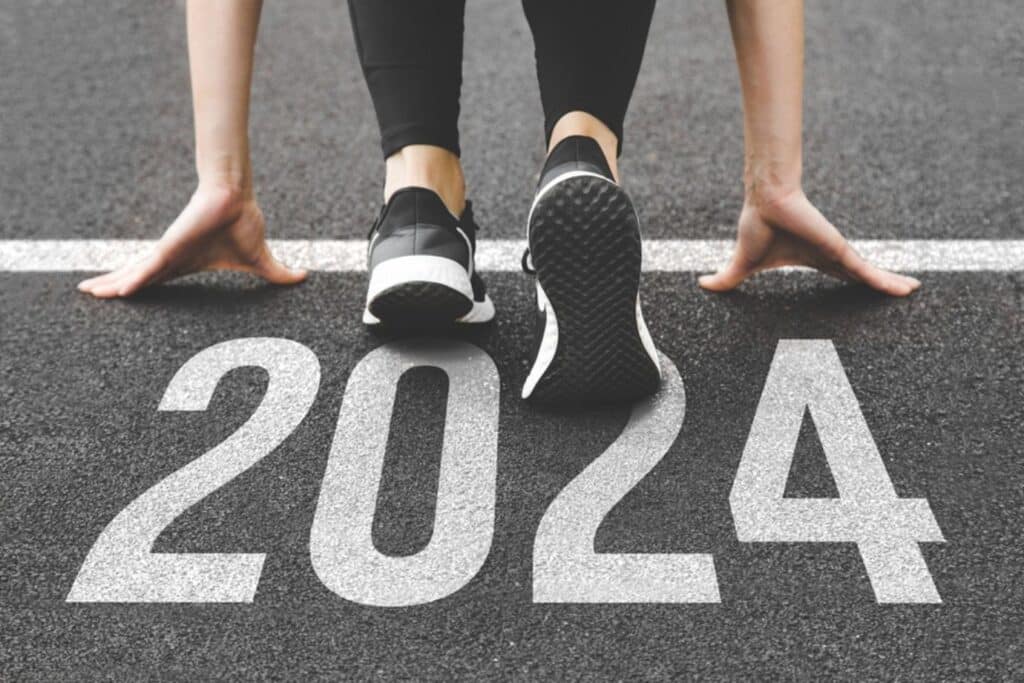On Monday morning, January 1 2024, my friends and I sat around the TV and watched The Lion King. I’m not sure what inspired us to put this random choice of film on, but it turned out to be a fitting choice for the new year.
As Disney’s classic hit The Circle of Life rang throughout the house, we discussed the age-old new year question: What are your new years’ resolutions?
One by one, we declared the promises we wanted to make to ourselves in 2024: more exercise, less screen time, more crocheting, less partying.
According to research from Forbes, 62 per cent of respondents to a survey said they feel pressured to set a new year’s resolution on the first day of the year. Women, the survey found, feel slightly more pressured (64 per cent) than men (60 per cent).
Almost half of the respondents (48 per cent) said their top priority on their new year’s resolution list was to improve their fitness. More women (52 per cent) than men (42 per cent) intended to make this commitment for 2024.
Other top categories included improved finances, improved mental health, weight loss and improved diet.
Of course, both men and women make these self-improvement commitments. But the difference to me seems to be this: men make new year’s resolutions for themselves, while women make new year’s resolutions for others.
The thing is, women and girls are experts at making these promises to “a better self”. In fact, we’re conditioned to think about it not just on the first day of the year, but every single day of our lives.
In 2012, a study from Diet Chef reported by Cosmopolitan found women spend an average of 17 years of their lifetime dieting in an attempt to lose weight. Around 90 per cent of women have tried to lose weight in one way or another in their lifetime.
The top reason for women wanting to lose weight, the study found, was for an upcoming summer holiday. The “bikini body klaxon”, as Cosmopolitan so flippantly put it.
More often than not, we – women and girls – see ourselves as nothing but a “self-improvement project”. We devour self-help books. We earnestly soak up advice from our favourite influencers. We continuously strive for that body, that lifestyle and that happiness.
But more often than not, the “self-help” and “self-improvement” labels are facades. Beneath the surface lurks the societal pressures to strive for that body, that lifestyle and that happiness. It doesn’t come from us. Rather, it comes from the outside.
The pressure is more pronounced on the first day of the year. A clean slate. A fresh start. An opportunity to cement healthy habits for a better self.
Then, 365 days later, if we haven’t met those goals we made on 1 January, we punish ourselves and vow to do better in the new year.
It really is the circle of life for so many women.
Men, on the other hand, seem less bothered by the whole new year’s resolution thing. After my friends and I told each other our resolutions, one friend texted her brother to see what his commitments for 2024 would be.
“I don’t really make resolutions,” he replied. “I think the whole thing is stupid.”
Generally speaking, while men and women may be making the same commitments, men are more privy to self-empowerment – to working on their new year goals for themselves and for no one else. They can choose to make self-improvement resolutions, or not, and either way, they are probably less likely to be queried over it.
This choice becomes available when you haven’t experienced the pressures that women disproportionately face when it comes to body image and self-improvement.
Despite popular opinion, I like new year’s resolutions. Humanity has never faced more challenges; naturally, our thoughts can become quite cynical. The optimism of new year’s resolutions and the idea of turning over a new leaf is rather refreshing.
But the key is to turn over a new leaf for ourselves and for no one else. Because through despair and hope, through faith and love, it’s ourselves that get us through to the other side of the 365 days of the year. Then we get to do it all over again.
That’s the circle of life.


